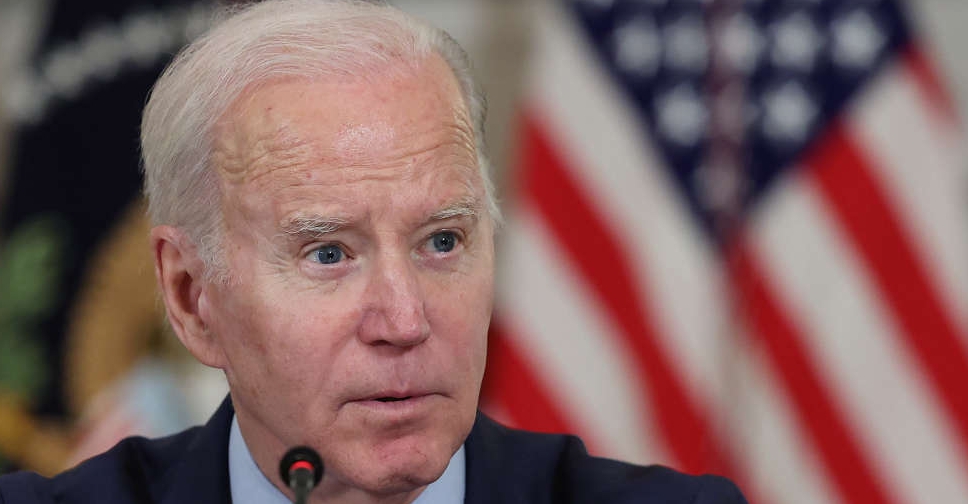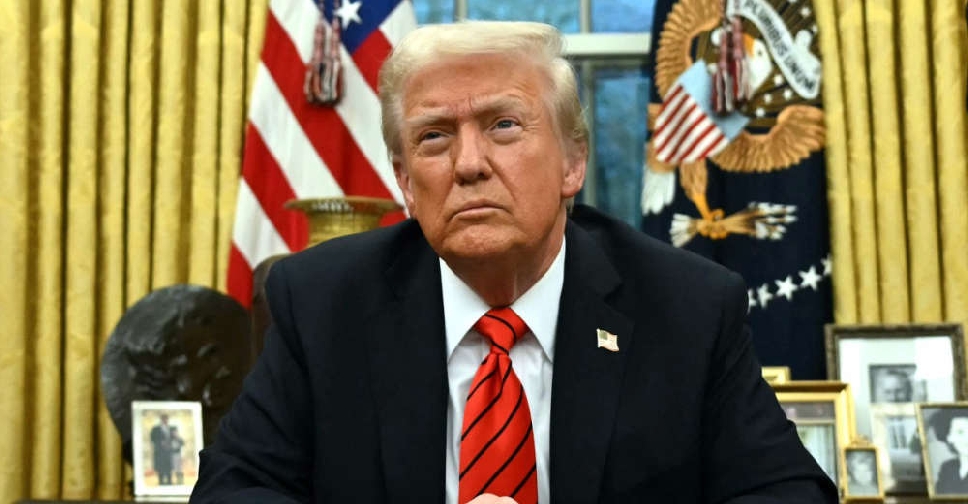
US President Joe Biden arrives in Belfast on Tuesday at a delicate political time in Northern Ireland as he helps mark the 25-year anniversary of a peace deal that largely ended 30 years of bloodshed there.
Biden, known for decades for his pro-Irish views, will need to tread carefully as pro-British unionists loyal to London continue to boycott the devolved power-sharing government that was a fundamental part of the 1998 Good Friday Agreement.
The American leader was expected to meet representatives from five Northern Irish parties in advance of his speech at Ulster University but was not planning to pressure them, a senior administration official said.
"The president will have the opportunity to engage with the political parties of Northern Ireland before his speech, and as we've said, he looks forward to continuing to engage them as we work to improve the lives and livelihoods of all communities there," said John Kirby, the White House national security spokesperson.
Northern Ireland's Democratic Unionist Party (DUP) has said Biden's visit - the first by a US president in 10 years - will not pressure it to end its protest at post-Brexit trade rules that treat the province differently to the rest of the United Kingdom.
Biden, who will float the possibility of closer investment ties between the US and Northern Ireland to try to encourage an end to the impasse, clashed with the British government at times during the Brexit talks, drawing a rebuke from the DUP.
"The American involvement here has been a positive and a constructive one and fair in respect to the protocol issues," Irish Foreign Minister Micheál Martin told national broadcaster RTE, referring to the trade barriers that the European Union and UK agreed to ease in a recent deal endorsed by Biden.
"I think the president is anxious that the restoration of the (power-sharing) executive would pave the way for an economic agenda. That would be an important dividend of the visit."
Biden, who will meet British Prime Minister Rishi Sunak on his arrival late on Tuesday and make his an address at Ulster University in Belfast on Wednesday, will use the trip to underscore the United States' readiness to support Northern Ireland's "vast economic potential", the White House said last week.
However, the latest political stalemate is set to overshadow the visit and the anniversary of the peace deal the US helped broker between Irish nationalists seeking a united Ireland and pro-British unionists wanting to remain part of the UK.
There is still sporadic violence by small groups opposed to peace and police were attacked with petrol bombs at a parade opposing the agreement in Londonderry on Monday.
Britain's MI5 intelligence agency recently increased the threat level in Northern Ireland from domestic terrorism to "severe" - meaning an attack is highly likely. It has been mostly at that level since its introduction in 2010.
Biden, who speaks proudly of his Irish roots and frequently quotes Irish poets such as Seamus Heaney, will then spend three days in Ireland where he will address the parliament in Dublin and visit his ancestral homes on either coast.
He will meet distant cousins in County Louth on Wednesday and give a public address in the western county of Mayo, where his great-great-grandfather Edward Blewitt grew up, before departing on Friday.
"Since (Jonh F.) Kennedy there hasn't been as Irish American a president as Joe Biden and we're really looking forward to welcoming him home," Irish Prime Minister Leo Varadkar said on Sunday.




 Trump adds seven countries to full travel ban list
Trump adds seven countries to full travel ban list
 Indian parliament votes to allow private firms in nuclear power sector
Indian parliament votes to allow private firms in nuclear power sector
 Doctors in England start five-day walkout during flu surge
Doctors in England start five-day walkout during flu surge
 Israeli settler kills 16-year-old Palestinian in West Bank, mayor says
Israeli settler kills 16-year-old Palestinian in West Bank, mayor says
 Paris' Louvre reopens partially but staff vote to extend strike
Paris' Louvre reopens partially but staff vote to extend strike






